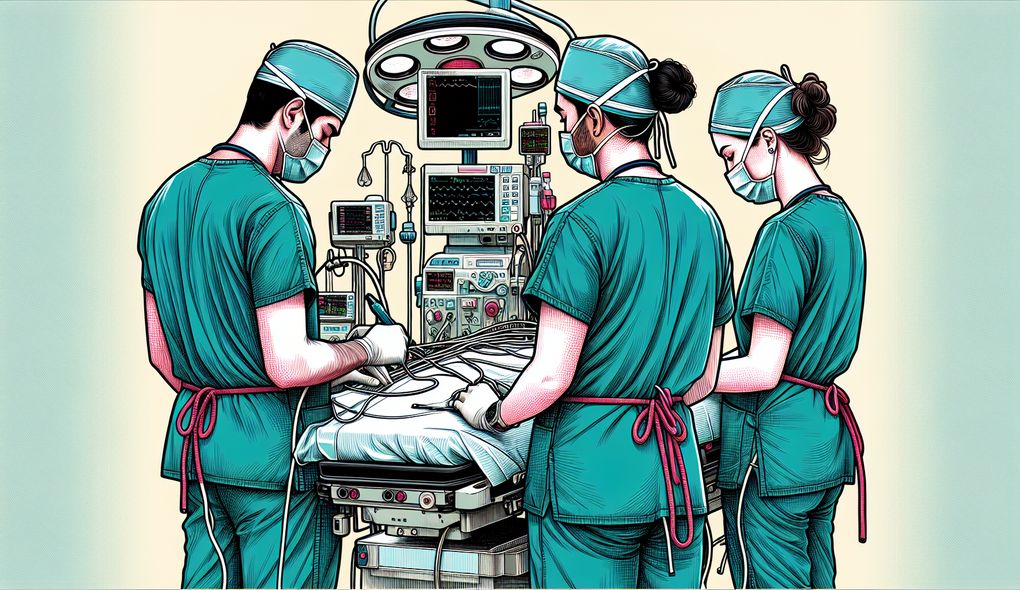How do you prioritize your workload and stay organized in a fast-paced environment?
INTERMEDIATE LEVEL

Sample answer to the question:
To prioritize my workload and stay organized in a fast-paced environment, I first create a to-do list with all my tasks and deadlines. Then, I assess the urgency and importance of each task and prioritize accordingly. I focus on completing the most critical tasks first while ensuring I meet all deadlines. To stay organized, I use digital tools like project management software and calendars to keep track of my tasks and deadlines. I also break down larger tasks into smaller, manageable subtasks and set realistic deadlines for each. Regularly reviewing my progress and adjusting my priorities as needed helps me stay on track and avoid missing deadlines.
Here is a more solid answer:
In a fast-paced environment, I prioritize my workload by first understanding the urgency and importance of each task. I assess the impact each task has on patient care and surgical outcomes. For example, if there's a critical patient awaiting surgery, I prioritize their preoperative assessments and ensure they receive immediate attention. To stay organized, I use a combination of digital tools and physical systems. I utilize project management software to track tasks and deadlines, and I also maintain a physical to-do list on my desk. Breaking down larger tasks into smaller subtasks helps me better manage my time and avoid feeling overwhelmed. Additionally, I always communicate with the surgical team to understand their priorities and align my work accordingly. This collaborative approach ensures that we are all working towards the same goals and delivering high-quality care to our patients.
Why is this a more solid answer?
The solid answer provides specific examples and details to demonstrate the candidate's skills in organizational skills, time management, and ability to work well under pressure. It highlights the candidate's ability to prioritize tasks based on the impact on patient care and includes a collaborative approach with the surgical team. However, it could be further improved by providing more specific examples of using digital tools and physical systems to stay organized.
An example of a exceptional answer:
To effectively prioritize my workload and stay organized in a fast-paced environment, I employ a structured approach that ensures optimal patient care and efficient workflow. Firstly, I assess the urgency, importance, and impact of each task on patient outcomes and assign priorities accordingly. For instance, if there is a patient requiring immediate surgery due to a life-threatening condition, I allocate the necessary resources and focus on expediting their care. To stay organized, I leverage both digital tools and physical systems. I utilize project management software to create detailed task lists, set deadlines, and collaborate with the surgical team. Additionally, I maintain a physical Kanban board in the surgical unit, visualizing the status of tasks, and fostering efficient teamwork. Breaking down complex tasks into smaller, manageable subtasks allows me to track progress and ensure timely completion. I also implement time-blocking techniques, dedicating specific time slots for specific tasks to maintain focus and avoid distractions. Regularly reviewing my progress and adjusting priorities as needed helps optimize productivity. To effectively manage high-pressure situations, I practice mindfulness and employ stress-reducing techniques such as deep breathing and positive self-talk. I also ensure open communication with the surgical team, proactively seeking feedback and providing updates on task statuses. By seamlessly integrating these strategies, I consistently deliver excellent patient care, maintain a well-organized workflow, and thrive in a fast-paced environment.
Why is this an exceptional answer?
The exceptional answer goes above and beyond by providing a structured approach and incorporating specific techniques and strategies. It demonstrates the candidate's ability to assess urgency, importance, and impact on patient outcomes. The answer includes the use of both digital tools and physical systems, such as project management software and a Kanban board, to stay organized. It also mentions time-blocking techniques and stress-reducing strategies to effectively manage high-pressure situations. The answer showcases the candidate's commitment to open communication and continuous improvement. Overall, it provides a comprehensive and detailed response that aligns with the job requirements.
How to prepare for this question:
- Familiarize yourself with project management software and practice using it to track tasks and deadlines.
- Research time management techniques, such as time-blocking and prioritization frameworks, and apply them in your daily routine.
- Develop effective communication skills to collaborate with the surgical team and align priorities.
- Practice stress-reducing techniques, such as deep breathing and positive self-talk, to manage high-pressure situations.
- Reflect on past experiences in fast-paced environments and identify specific examples where you successfully prioritized workload and stayed organized.
What are interviewers evaluating with this question?
- Organizational skills
- Time management
- Ability to work well under pressure

